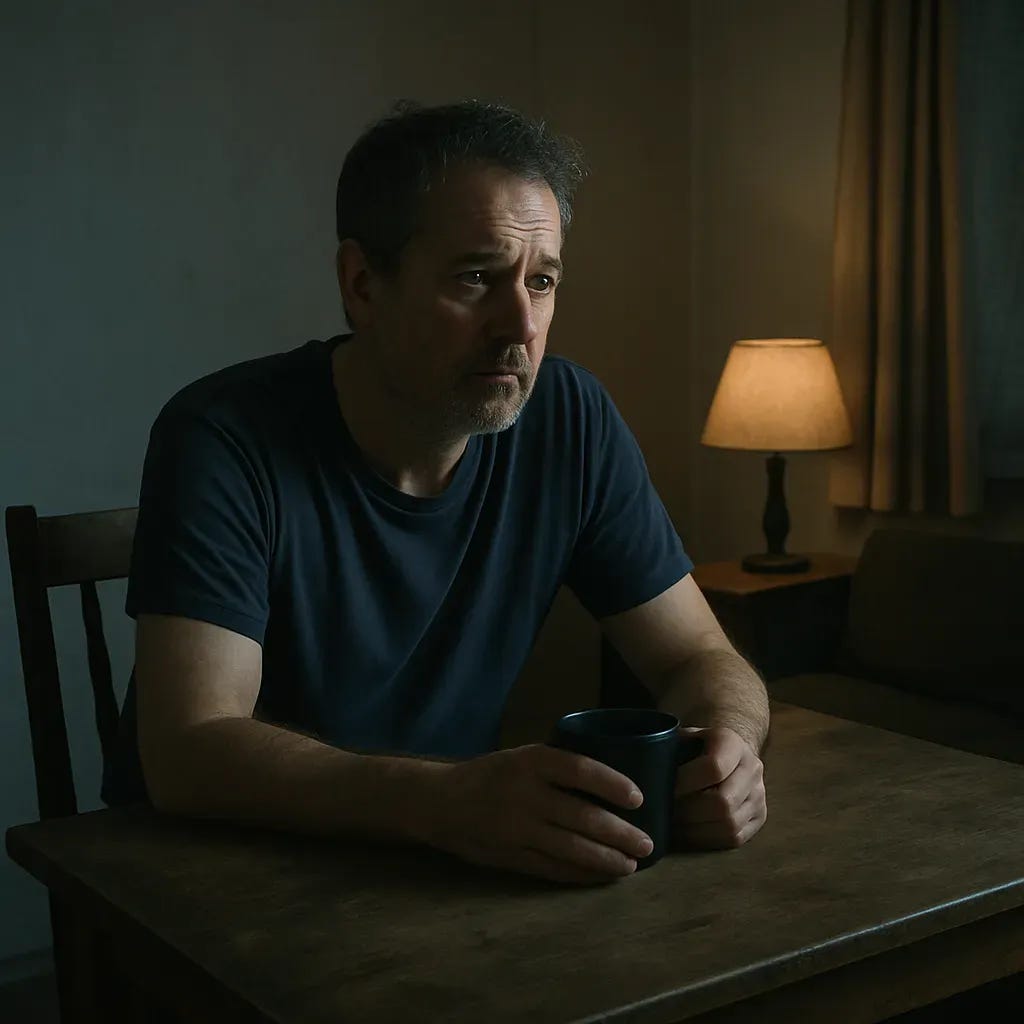Still Life with Man and Lamp
There is a silence that settles into the walls of a home when no one else lives in it. It’s not the comfortable quiet of solitude, nor the luxurious peace that comes with retreat. It’s a colder thing—a kind of stillness that feels like the air is holding its breath, waiting for something to happen. That’s one of the first lessons a middle-aged man learns when he finds himself living alone: that silence has weight. And it can feel crushing.
To live alone as a middle-aged man is to live with the full echo of one’s choices, chances, and changes. Every creak in the floorboards at night reminds you there’s no one down the hall. Every cough, every sudden sharp pain makes you wonder: What if something happens? Who would know? Who would care? It’s not just loneliness; it’s the realization that invisibility has crept up on you. You become a ghost in your own life, haunting spaces that once thrummed with noise and life—family dinners, children’s laughter, a partner’s footfall on the stairs.
What people often misunderstand is that fear, in this context, isn’t about monsters or muggers. It’s about meaning. About the slow, daily erosion of identity. In youth, a man is often defined by his potential. In midlife, he's defined by what he’s done—or hasn’t. When he comes home, there’s no voice asking how his day went. There’s no hand reaching for his. There are dishes in the sink, a pile of unopened mail, and the dull ache of routine. He becomes his own audience, his own echo chamber, his own caretaker. That level of self-reliance sounds noble until you realize it’s built on the absence of anyone else.
Society doesn’t talk much about middle-aged men unless they’re failing spectacularly or succeeding publicly. But the quiet fear that stalks the average guy—decent, worn down, trying—is the kind that leaves no mark. He fears irrelevance. He fears emotional atrophy. He fears becoming the man at the grocery store who strikes up conversation in the cereal aisle, not because he’s weird, but because it’s the only voice he’s heard all day.
Of course, not every man who lives alone is terrified. Some revel in it, crafting lives rich with solitude and meaning. But many others are just surviving. They navigate friendships that have thinned out, avoid dating apps that feel designed for younger versions of themselves, and battle the stigma of needing help when they were raised to provide it, not request it.
To be a middle-aged man living alone is to know, intimately, the fine line between independence and isolation. It is to feel both the freedom of unshared space and the prison of unshared burdens. It’s to scroll through your phone contacts and realize the emergency contact is still your ex-wife. It’s to try to remember the last time someone hugged you without it being a formality.
So yes, it is scary. Not in the way that horror films are scary, but in the way that standing in the middle of your kitchen at 2 a.m., hearing the buzz of the refrigerator and nothing else, is scary. Because in that moment, you realize that what you fear isn’t being alone. It’s staying that way. Forever.





